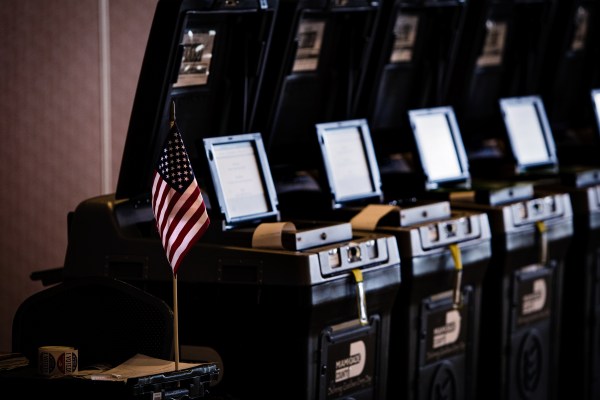Four senior senators have called on the largest U.S. voting machine makers to explain why they continue to sell devices with “known vulnerabilities,” ahead of upcoming critical elections.
The letter, sent Wednesday, calls on election equipment makers ES&S, Dominion Voting and Hart InterCivic to explain why they continue to sell decades-old machines, which the senators say contain security flaws that could undermine the results of elections if exploited.
“The integrity of our elections is directly tied to the machines we vote on,” said the letter sent by Sens. Amy Klobuchar (D-MN), Mark Warner (D-VA), Jack Reed (D-RI) and Gary Peters (D-MI), the most senior Democrats on the Rules, Intelligence, Armed Services and Homeland Security committees, respectively. “Despite shouldering such a massive responsibility, there has been a lack of meaningful innovation in the election vendor industry and our democracy is paying the price,” the letter adds.
Their primary concern is that the three companies have more than 90 percent of the U.S. election equipment market share but their voting machines lack paper ballots or auditability, making it impossible to know if a vote was accurately counted in the event of a bug.
Yet, these are the same devices tens of millions of voters will use in the upcoming 2020 presidential election.
Spokespeople for ES&S and Diminion said their companies will respond to the letter they received. Hart InterCivic did not return a request for comment.
The senators, including Klobuchar — who is running for president — said the elections remain “under serious threat.”
Security experts have for years sounded the alarm about insecure voting machines. A key concern is that these devices can be easily hacked to meddle with election results. Just months ago, during early voting in some Texas counties, voters found problems with Hart’s election machines, with, in some cases, options removed entirely from the ballot screen. In ES&S’ case, the company sparked anger in the Capitol after saying it would not provide its systems to security researchers. Its announcement came not long after it had a disastrous reception at Def Con’s Voting Village, which saw one of its voting machines hacked.
The ranking Democrats say paper ballots are “basic necessities” for a reliable voting system, but the companies still produce machines that don’t produce paper results. Democratic lawmakers introduced a bill last year that would make a paper trail mandatory in future elections, but it never passed.
The companies have until April 9 to respond to the senators’ letter.
Updated with comment from ES&S and Dominion. Corrected date of reply to April 9.
